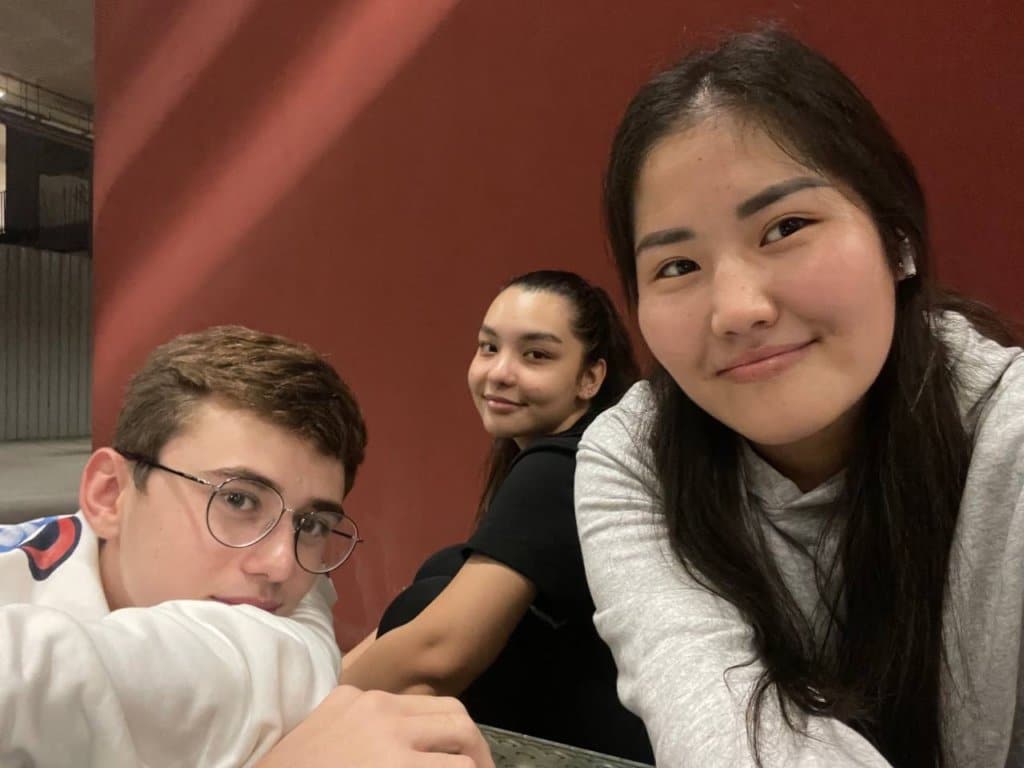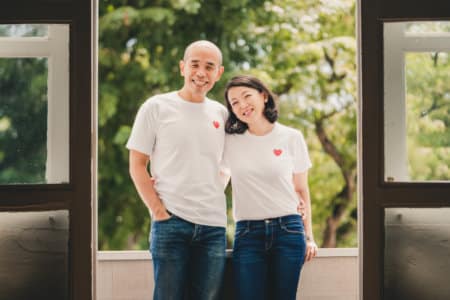
After finishing school, Elina Aidarova had two options: either stay in her home country of Kazakhstan or continue her studies overseas. It’s common for women in Kazakhstan to halt their education in favour of marriage. Mostly, men are the ones who go on to work, becoming the breadwinners of their families.
“A lot of women give up on their education during secondary school,” she explains. “Most of them are okay with what they have — they’re not interested in achieving more.”
Kazakhstan is one of the first countries in Central Asia to establish a national entity to promote gender equality. There’s a plan to increase the number of women in decision-making roles by 30% and improve their economic opportunities, education levels and wage equality. This has resulted in a marked rise in the country’s Global Gender Gap standing for 2022.
However, UN Women reports that this number, while certainly an improvement, is still significantly low. This puts women in Kazakhstan in a dangerous position. UNICEF shows that investing in girls’ education directly impacts their chances to earn higher incomes, participate in decisions that affect them most, and build better futures for themselves.
By choosing to pursue her degree in Malaysia, Aidarova is hoping to break that cycle. “Girls [from Kazakhstan] who study abroad are coming back and trying to change the system,” she tells Study International. “Our generation isn’t bound by the same circumstances of 10 to 20 years ago. We need to change some things in the country to create a better system.”

Aidarova and her friends travelling in Malaysia. Source: Elina Aidarova
Women in Kazakhstan who are breaking barriers
For Aidarova, studying abroad had been a dream since she was a young girl. “In Kazakhstan, not so many people speak English,” she explains. “There were only local teachers who taught English at first, but a few years later, we began to have more international teachers. I saw how speaking English opened up more opportunities for me — it set me apart from my other peers.”
After finishing school, Aidarova’s first step was to apply for a major in International Business Management at a university in the Czech Republic. However, she faced some visa restrictions due to the pandemic and was unable to physically attend classes.
It was then that she heard about the business opportunities in Asia. “For the major that I’m studying, I’ve heard that it’s better to learn in Asia because there are more options,” she says. “So I can choose logistics, or marketing, or management. Malaysia was an easy option because of the smooth visa process.”
Aidarova chose the Asia Pacific University of Technology and Innovation (APU) in Malaysia — which turned out to be one of the best decisions of her life.
“APU does a lot to ensure that students can get as much exposure as possible,” the 19-year-old says. “At APU, I’m Vice President of the Sales community. Beyond that, I’m an ambassador of the Kazakh community in Kuala Lumpur and work closely with our embassy to organise national events for students. I’m currently working as a manager of a language camp with a woman from Kazakhstan I’m trying to ask for every opportunity so that people notice that I’m active and willing to work for it.”
Part of the International Business Management programme is taking part in an internship. Aidarova is hoping that this will be an easier process given the connections she’s built — and the generous spirit of her community will surely aid in her journey.
“I’ve made a lot of friends, both local and international, who have various connections with certain companies,” she shares. “APU is great because everyone is always so willing to help, which opens up lots of opportunities for the future.”

While other women in Kazakhstan are choosing marriage, Aidarova is focusing on her education and career. Source: Elina Aidarova
Life as an international student in Malaysia
Aidarova fell in love with Malaysia from the moment she first landed. On her first day, her fellow students picked her up from the airport and brought her around the country and they became fast friends.
This isn’t an isolated experience, either; everyone she’s met in the country has been warm and friendly. “I didn’t miss home so much because I have a lot of people around me,” she says. “I had my studies, my activities and good friends.”
That’s not to say that living in Malaysia did not come without its challenges. “I think most of the time, you’d miss your food,” she explains.
“During my first month here, I couldn’t eat anything because everything was so spicy and unusual. In Kazakhstan, we usually eat soups and salads but there’s not much of that here. But I eventually found a Russian restaurant which offers similar foods.”
Then there’s the struggle of living alone for the first time. “Back home, I wasn’t really doing any housework because my mum was always asking me to focus on my studies and activities,” she shares.
“But when I came here, I had to find the time to do everything — to balance my assignments and activities with cooking and cleaning. It’s a challenge because sometimes, I’m very tired, but I know that no one else can do it for me.”
What’s next for women in Kazakhstan
Aidarova’s next steps? “I don’t mind going back and working in my country,” the Kazakh says. “If someone is offering me a job with a good salary and working conditions, I’d be happy. Of course, if I get a better offer in another country, I’ll go there. As a fresh graduate, I’m looking for different experiences with foreign people. It’s always interesting to see what other working cultures are like.”
Above all, she hopes to improve circumstances and widen opportunities for women in Kazakhstan like her.
“You have to take every opportunity while you’re still young,” she says. “I could have stayed back home like many women in Kazakhstan and just gotten married. I could have just lived as a housewife. But my parents invested a lot of money to give me an opportunity to study here. So, I have a big responsibility to do well — and I’m not going to take that for granted.”










